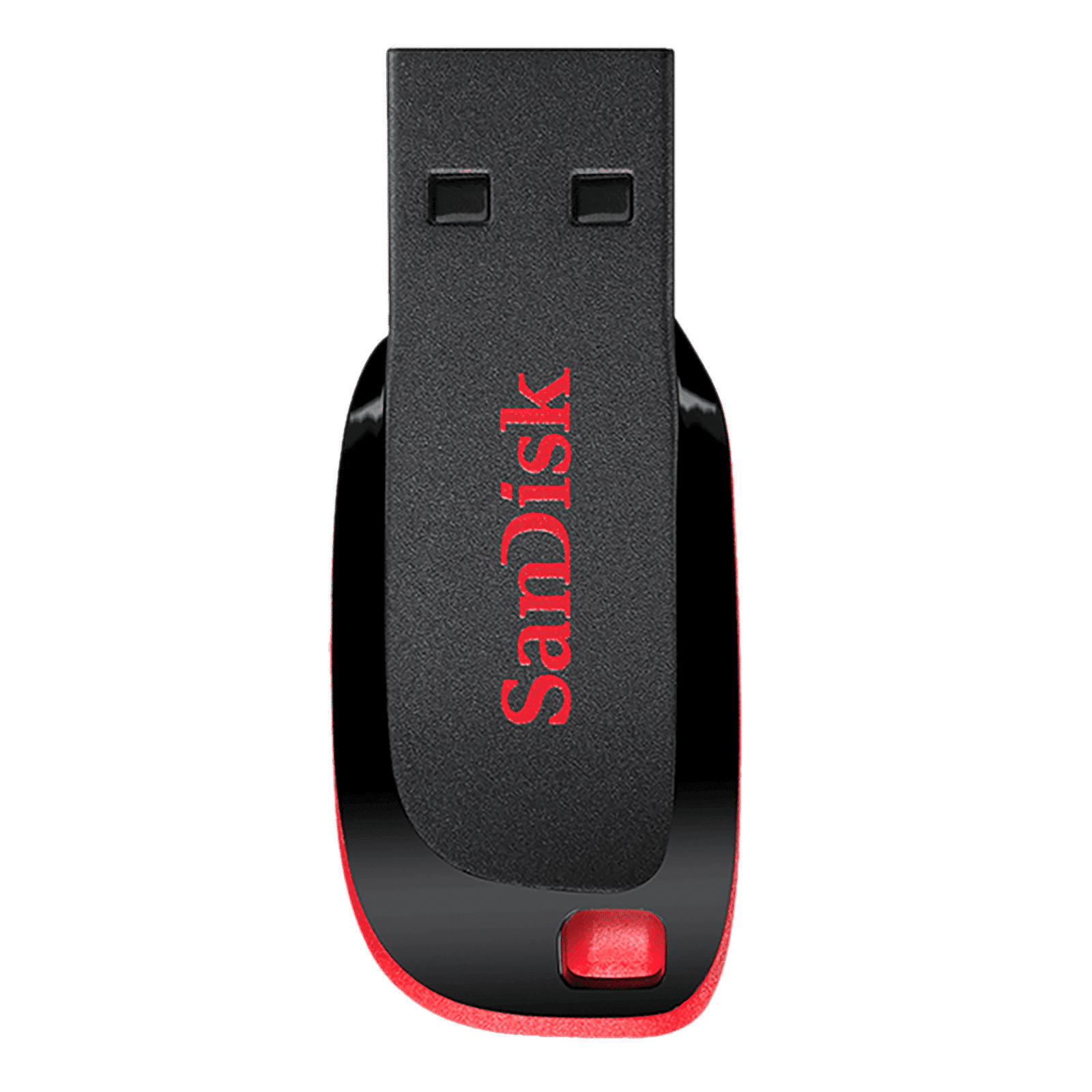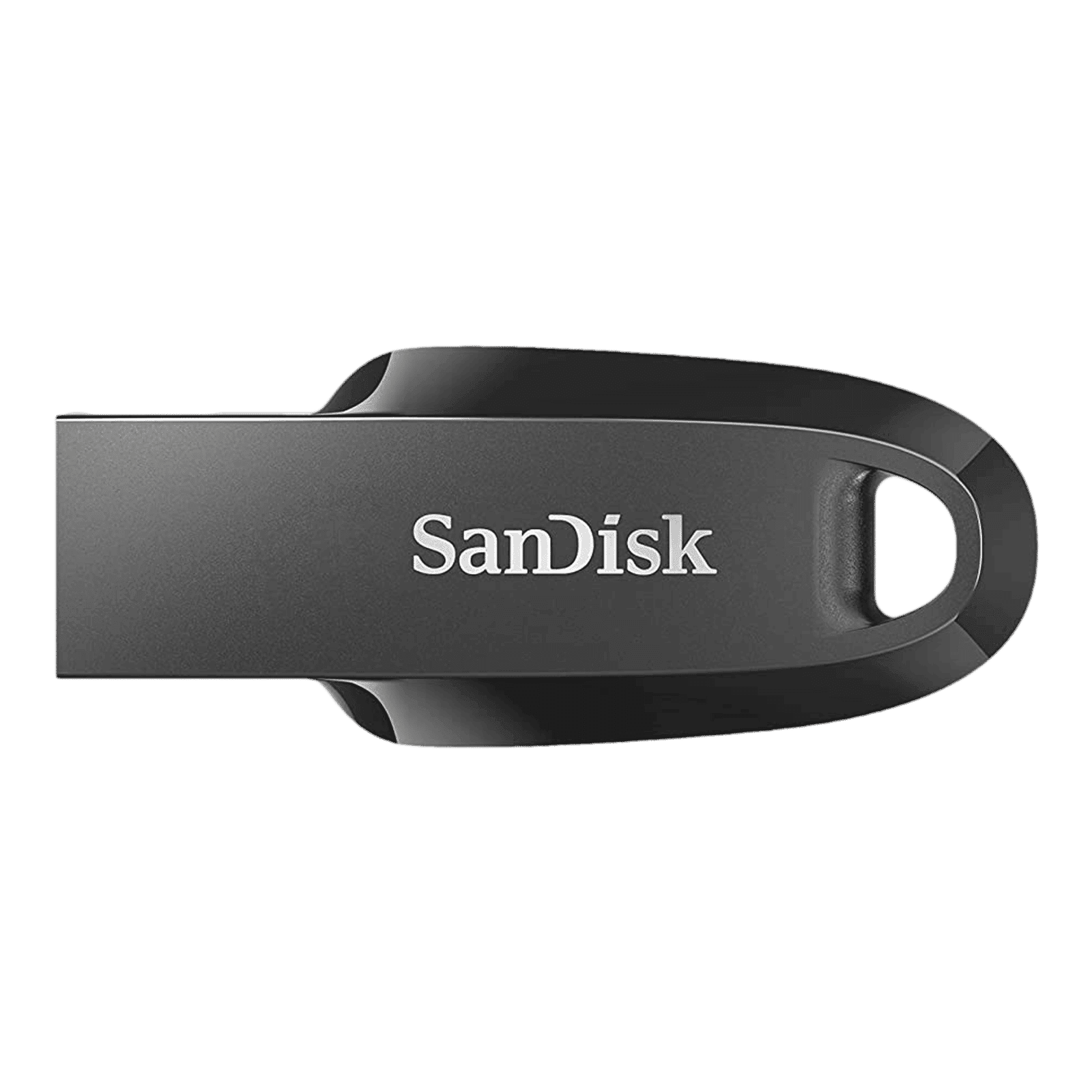%20(Presentation)%20(1600%20x%20600%20px)(519)-3cf924df-bbf9-47f2-81bf-a53bae0496b5.webp&w=3840&q=75)
Consumer Electronics
•04 min read

Buy SanDisk Cruzer Blade 64GB USB (2.0) Pen Drive (High-Capacity Drive, Red) online at best prices from Croma. Check product details, reviews & more. Shop now!
The ever-evolving world of data storage can be overwhelming. Flash disks and SSDs each bring distinct strengths to the table. By reading this post, you'll gain a clear understanding of their unique benefits, and which one is best suited for your needs.
Flash disks, often known as USB flash drives, are small, portable storage devices that allow you to quickly transfer or store data. They work using flash memory technology, making them affordable and incredibly compact. This makes them ideal for tasks like file sharing and temporary storage while you are on the move.
Solid-state drives, or SSDs, are designed with advanced technology that employs NAND flash memory. Unlike traditional storage options, SSDs have no moving parts and deliver impressive speed and reliability. They are often used to replace traditional hard drives in laptops and desktops, providing high-speed data access and robust performance.
Flash disks usually offer storage from 8GB up to 1TB, which is perfect for everyday transfers and lighter storage needs. In contrast, SSDs range from 128GB to as high as 4TB, catering well to users requiring larger-scale storage for extensive files, multimedia work, and backup solutions.
When it comes to speed, SSDs have the advantage. Their read and write speeds make them ideal for tasks like booting an operating system or moving large files quickly. Flash disks, while fast enough for transferring documents, generally do not match the consistent high-speed performance found in SSDs.
SSDs are built to handle shocks and vibrations better than flash disks. Their construction typically ensures a longer lifespan and less risk of data loss over time. Flash disks might be prone to wear with heavy use, which is important to consider if you need a long-term storage solution.
Flash disks win in the portability department. Their compact design means you can carry them anywhere with ease. Although SSDs can be used externally with adapters, they are generally designed for internal use in computers or require additional cases for mobility.

Buy SanDisk Ultra Curve 64GB USB (3.2) Pen Drive (Compact Design, Black ) online at best prices from Croma. Check product details, reviews & more. Shop now!
Price is an important factor when you determine which storage option to choose. Generally, flash disks are more cost-effective, especially for smaller capacities. With SSDs, you pay a premium for higher performance and larger storage spaces, making them a better choice when performance outweighs cost.
If you need quick transfers, temporary storage, or a highly portable device, a flash disk is your go-to choice. They are ideal for sharing documents, storing presentations, or keeping important files with you on the go. Their convenience makes them indispensable for everyday tasks.
SSDs excel in performance-intensive applications. They are well-suited for gaming, video editing, or upgrading your laptop for faster boot times and smoother overall operations. Although they come at a higher cost, the performance benefits and long-term reliability make them a prudent investment if you require robust storage solutions.
It is key to note that both flash disks and SSDs utilise flash memory. However, they differ mainly in their design and intended application. SSDs are engineered for ongoing high-speed performance, while flash disks are crafted for sheer portability and ease of use.
While both types serve as portable storage, SSDs allow for higher performance when used externally, such as with adapters or cases. Flash disks remain the most practical choice for carrying crucial documents or photos during travel.
Did You Know? Flash Memory Powers Both!
Both flash disks and SSDs rely on flash memory technology, but they are designed with different user needs in mind. SSDs prioritise sustained performance, while flash disks focus on convenience and portability.
SSDs offer outstanding performance benefits. Their rapid data access speeds can dramatically enhance your experience during gaming sessions, video editing projects, or while running demanding software applications. The quicker read and write speeds translate into a smoother, more efficient workflow.
Because SSDs are built without moving parts, they are less susceptible to mechanical wear and tear. This design results in a longer lifespan and enhanced durability, making them a reliable option for long-term storage. Investing in an SSD can help you avoid frequent replacements.
SSDs offer great versatility. They can be installed internally in your computer to boost overall performance or used externally with the right accessories. This flexibility means that depending on your evolving needs, an SSD can adapt to different roles and environments.
With Tata Neu, making smart technological investments is rewarded like never before. Every time you make a technology purchase through Tata Neu or in stores, you earn NeuCoins that add value to your shopping experience. Not only do these rewards help you save, but they also contribute to a seamless, trustworthy platform crafted with the customer in mind.
Yes, SSDs are better for performance, speed, and long-term storage, while flash drives are more portable and cost-effective for quick transfers.
No, SSDs use flash memory technology but are designed for higher performance and capacity compared to flash drives.
Flash storage, like USB flash drives, typically has slower speeds and shorter lifespans compared to SSDs.
Flash drives are not ideal for long-term storage due to their limited lifespan and potential for data corruption.
SSDs tend to be more reliable as they are constructed to provide consistent performance and durability over time.
Choosing between a flash disk and an SSD depends largely on your specific needs. If your priority is ease of use and portability, a flash disk may be perfectly adequate. However, for tasks requiring high speed and sustained performance along with long-term storage, an SSD is the more fitting choice. With Tata Neu’s approach to tech innovation, customers enjoy additional value through NeuCoins rewards that can be redeemed across a range of trusted brands, ensuring your purchases are as rewarding as they are smart.